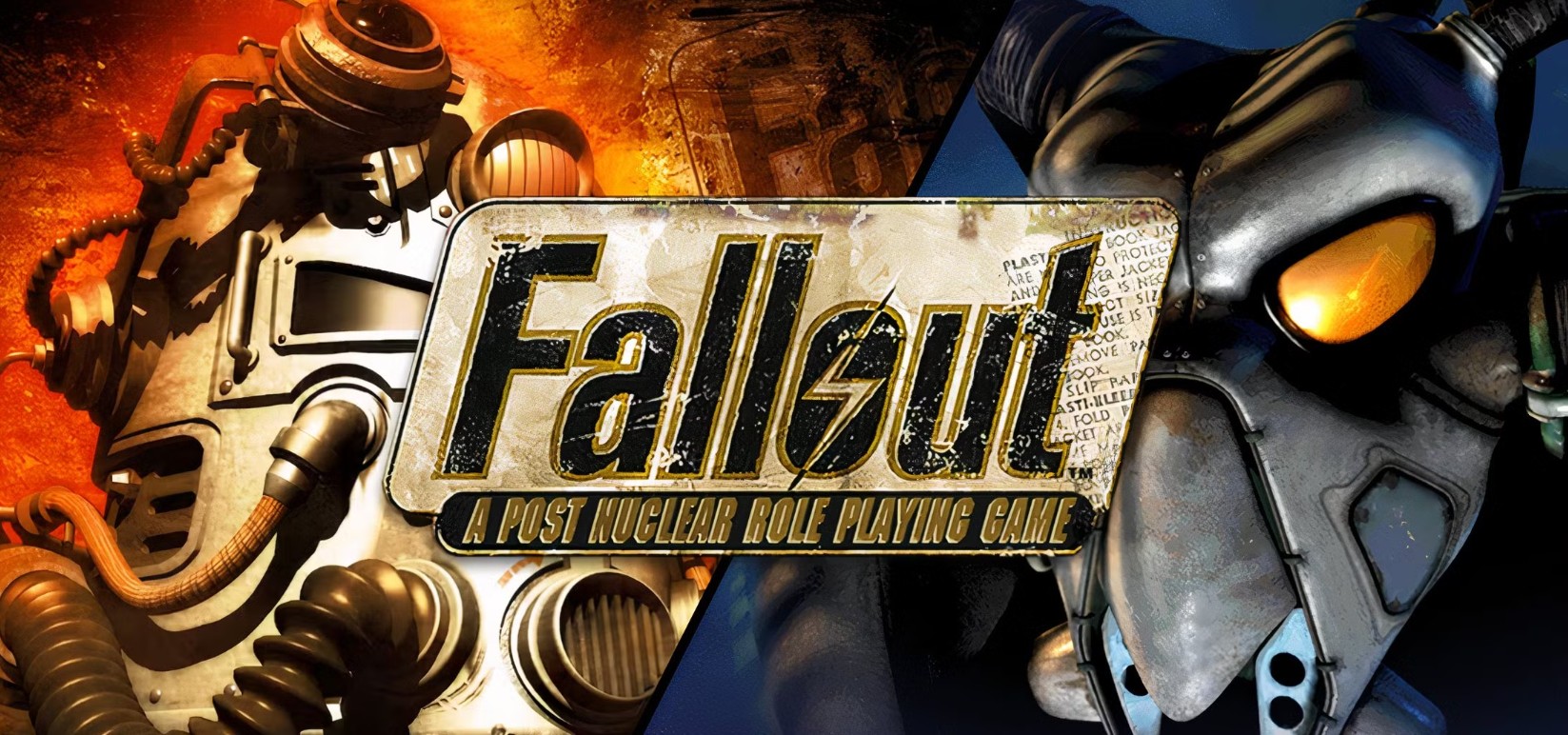It is a post-apocalyptic role-playing game that set the foundation for one of the most beloved franchises in gaming history. Developed by Interplay Productions, the game was released in 1997 and is known for its deep storytelling, turn-based combat, and richly immersive world.
This blog post will explore its development, gameplay, features, and tips for players diving into this classic for the first time or revisiting it for nostalgia.
Whether you’re a longtime fan of retro RPGs or someone discovering the wasteland for the first time, Fallout 1 offers a thought-provoking and strategic experience that remains compelling to this day.
File size
Development and Release of Fallout 1
Fallout 1 was developed by Interplay and initially released on September 30, 1997. It was envisioned as a spiritual successor to the Wasteland series and became a genre-defining title in the RPG world.
The development team utilized the GURPS (Generic Universal RolePlaying System) before eventually switching to their own SPECIAL system, which gave the game its unique character stats and gameplay depth.
Initially launched for MS-DOS and Windows, Fallout quickly earned critical acclaim for its mature storytelling, player-driven choices, and branching dialogue. Over the years, it has remained a fan-favorite and continues to be celebrated in retrospectives and gaming history discussions.
For those who appreciated the immersive experience of Fallout 1, The Elder Scrolls V: Skyrim offers a similarly strategic and character-focused journey.
Storyline and Setting of Game
Fallout 1 is set in a retro-futuristic world devastated by nuclear war. The year is 2161, decades after the bombs fell, and society has crumbled into scattered settlements, mutated creatures, and dangerous factions.
Players begin their journey as a Vault Dweller from Vault 13, sent on a mission to find a replacement water chip to save their isolated underground community.
The game’s setting mixes 1950s Americana aesthetics with bleak, post-apocalyptic landscapes. From shattered cities and deadly ruins to radioactive wastelands, every area is brimming with lore and moral dilemmas.
Fallout’s world is shaped by your choices, with multiple outcomes for every major decision, offering rich replayability and immersion.
Game Modes in Fallout 1
Fallout 1 focuses primarily on its single-player campaign, offering a detailed and branching narrative experience. The gameplay is divided into various interactions that shape the journey:
- Exploration Mode: Players roam a large world map, discovering towns, vaults, ruins, and hidden secrets. Random encounters also take place while traveling between areas.
- Dialogue and Interaction Mode: Conversations are pivotal in Fallout, with multiple choices that affect quest outcomes, character relationships, and reputation.
- Turn-Based Combat Mode: When combat is initiated, the game shifts into a turn-based system where players and enemies take turns based on Action Points.
Gameplay Mechanics of Fallout 1
Fallout 1’s mechanics are centered around role-playing, decision-making, and tactical combat. Here’s how it works:
- SPECIAL System: The game’s attribute system includes Strength, Perception, Endurance, Charisma, Intelligence, Agility, and Luck. Each stat affects skills and in-game interactions.
- Skills and Perks: Players can allocate points to skills like Speech, Lockpicking, Small Guns, and Science. Perks provide unique advantages as you level up.
- Inventory and Equipment: A wide range of weapons, armor, and items can be collected, used, or traded. Inventory management plays a role in survival.
- Combat and Tactics: The turn-based system emphasizes planning and positioning. Choosing which limb to target or when to flee can make the difference between life and death.
Thus, if you enjoyed the mechanics in Fallout 1, consider exploring Dark Souls: Remastered for a modern take on the tactical post-apocalyptic genre.
Beginner Tips and Tricks
For those venturing into Fallout’s harsh world for the first time, these tips can help:
- Invest in Speech and Lockpick: These two skills open up many dialogue and exploration opportunities.
- Save Often: Fallout’s world is unpredictable. Frequent saves can protect you from sudden misfortune.
- Explore Everything: Many side quests and secrets are hidden off the beaten path—don’t rush through the main quest.
- Manage Ammo and Healing Items: Resources are limited, so use them wisely.
- Be Cautious With Karma: Your reputation affects how NPCs react to you. Make choices carefully.
Important Features of Fallout 1 Game
Fallout 1 is widely praised for its groundbreaking design, offering a blend of role-playing depth and post-apocalyptic storytelling. Below are some of the game’s most notable features:
1) Branching Narrative and Moral Choices
Fallout 1 lets players tackle quests and conflicts in various ways—whether by peaceful negotiation, clever deception, or brute force.
These choices aren’t just superficial; they significantly shape the game’s storyline and determine which endings are unlocked. The open-ended approach makes every decision impactful and replay value incredibly high.
2) Unique Character Customization
Using the SPECIAL system, players can define their character’s attributes, from strength and agility to intelligence and luck.
Combined with an extensive range of skills and perks, this system allows for highly personalized playstyles. Whether you’re a stealthy thief, persuasive diplomat, or aggressive brawler, the game adapts to your build.
3) Atmospheric World Design
Set in a retro-futuristic wasteland, Fallout 1 creates a dark and haunting tone that perfectly captures the mood of post-nuclear survival.
The desolate towns, eerie sound design, and gritty visual style immerse players in a world teetering between ruin and resilience. It’s a setting where every location tells its own story.
4) Complex NPCs and Factions
Characters in Fallout aren’t just quest-givers—they have personalities, motivations, and moral ambiguity. Factions like the Brotherhood of Steel and shady groups challenge players to take sides or find a middle ground.
How you interact with these groups can alter your reputation and open—or close—major narrative paths.
5) Post-Apocalyptic Survival Feel
Fallout emphasizes the difficulty of surviving in a devastated world. Limited supplies, deadly creatures, and moral gray areas keep the tension high.
There’s no hand-holding; players must plan carefully, conserve resources, and make tough choices that could spell life or death for their character and community.
Advanced Combat Techniques
Once you’re familiar with the basics, mastering Fallout 1’s combat can give you the edge:
- Target Specific Limbs: In V.A.T.S.-style targeting, aim for arms to disarm enemies or legs to slow them down.
- Use Cover and Line of Sight: Hide behind objects and lure enemies into favorable terrain.
- Manage Action Points Efficiently: Don’t waste them—move and shoot strategically.
- Explosives for Crowd Control: When outnumbered, grenades and traps can even the odds.
- Tactical Retreats: Know when to run and regroup. Some enemies are better avoided until better equipped.
Why Fallout 1 Game Stands Out
Fallout 1 stands out for its timeless design, where choices truly matter and each playthrough offers something new. It’s a rare blend of role-playing depth, storytelling richness, and strategic combat.
Unlike modern open-world games filled with markers and objectives, Fallout gives you a map, a mission, and the freedom to survive as you see fit.
Its mix of dystopian storytelling, moral dilemmas, and iconic style makes it one of the most influential RPGs of all time. Even decades later, it remains a benchmark for narrative design in video games.
System Requirements
Though it’s an older game, here are the specs needed to run Fallout 1 on modern systems:
- OS: Windows 7/8/10 (compatible with DOSBox or Steam version)
- Processor: Intel Pentium or equivalent
- Memory: 64 MB RAM
- Graphics: DirectX-compatible graphics card
- Storage: 700 MB available space
Fallout 1 is more than just a classic—it’s a foundation upon which an entire franchise was built. With its gripping atmosphere, strategic depth, and thoughtful storytelling, it continues to inspire both gamers and developers alike.
If you’re ready to experience the game that started it all, Fallout 1 is waiting to welcome you into the wasteland.










